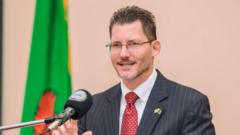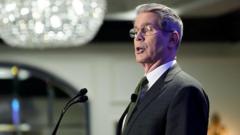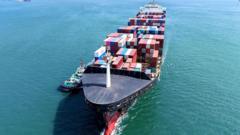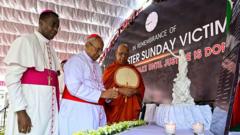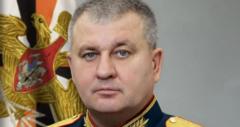The recent parliamentary elections in Sri Lanka marked a significant shift in the nation's political landscape, as the National People's Power coalition led by President Anura Kumara Dissanayake secured a commanding victory.
Sri Lanka's New Leadership: Leftist Coalition Aims for Reform after Victory

Sri Lanka's New Leadership: Leftist Coalition Aims for Reform after Victory
Sri Lanka's National People's Power coalition wins parliamentary elections, enabling president's reform agenda amidst economic challenges.
In the final results announced on Friday, the coalition garnered 159 out of 225 parliamentary seats, thereby obtaining a two-thirds majority that facilitates the implementation of a reform agenda aimed at enhancing welfare programs. This electoral outcome follows a period of severe economic hardship that culminated in a historic uprising and the resignation of former President Gotabaya Rajapaksa in 2022.
The previous government faced widespread criticism for its handling of Sri Lanka's economic crisis, including defaulting on external debt and failing to secure essential imports. As public dissatisfaction boiled over, Dissanayake's leftist coalition emerged as a proponent for change, promising measures against nepotism and corruption.
Despite concerns from opponents regarding the coalition's inexperience, particularly from the rival party led by Sajith Premadasa, Dissanayake's administration is expected to balance its election promises with the realities of existing financial commitments, including ongoing negotiations with the International Monetary Fund (IMF).
As Sri Lanka looks ahead, President Dissanayake's leadership will likely navigate the complexities of reform, aimed at stabilizing the economy while addressing the needs of the populace.
The previous government faced widespread criticism for its handling of Sri Lanka's economic crisis, including defaulting on external debt and failing to secure essential imports. As public dissatisfaction boiled over, Dissanayake's leftist coalition emerged as a proponent for change, promising measures against nepotism and corruption.
Despite concerns from opponents regarding the coalition's inexperience, particularly from the rival party led by Sajith Premadasa, Dissanayake's administration is expected to balance its election promises with the realities of existing financial commitments, including ongoing negotiations with the International Monetary Fund (IMF).
As Sri Lanka looks ahead, President Dissanayake's leadership will likely navigate the complexities of reform, aimed at stabilizing the economy while addressing the needs of the populace.

